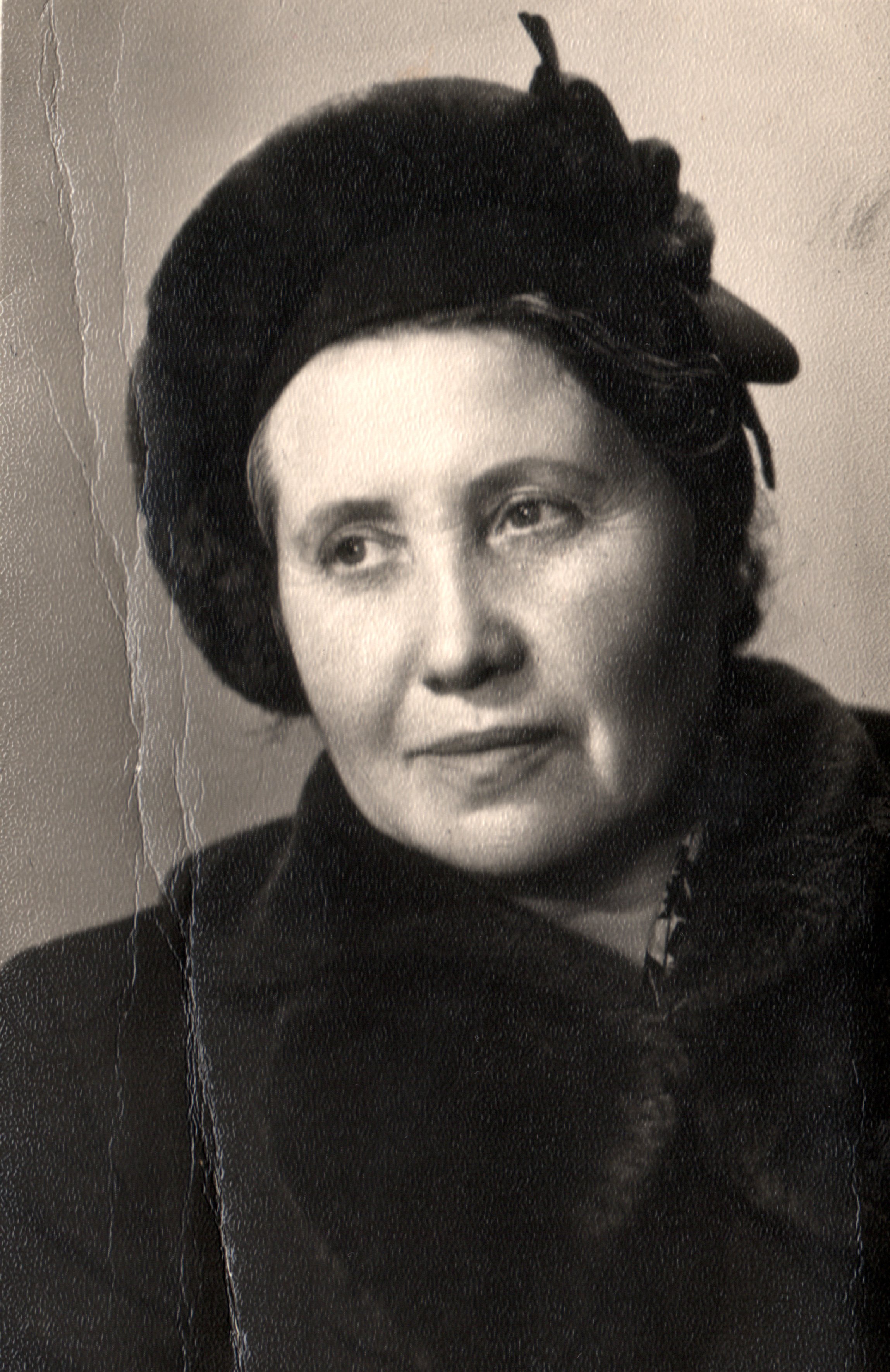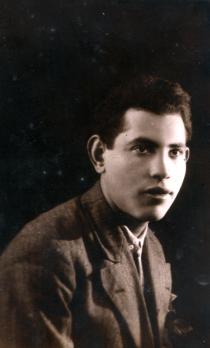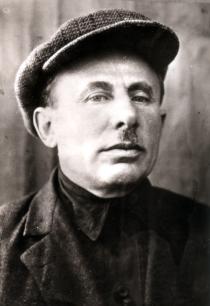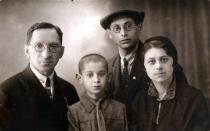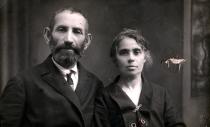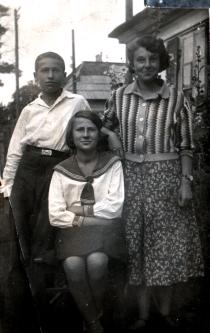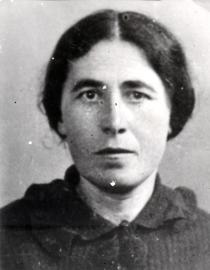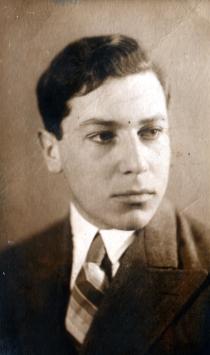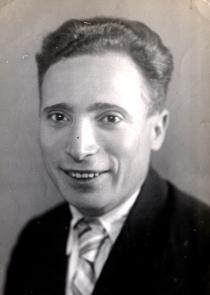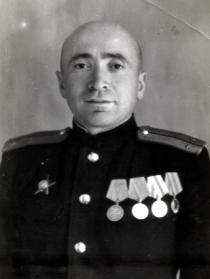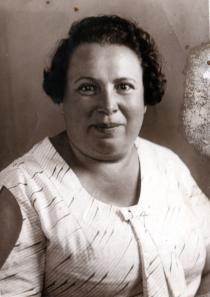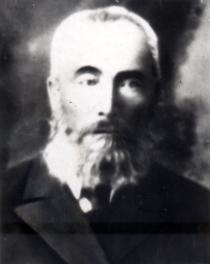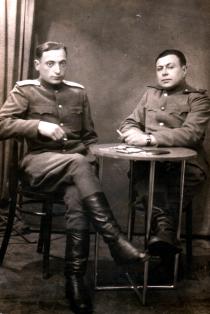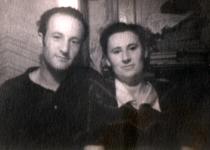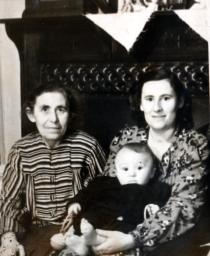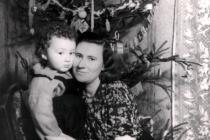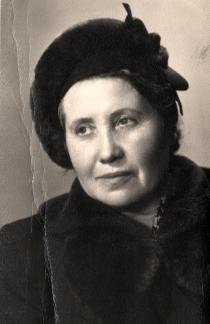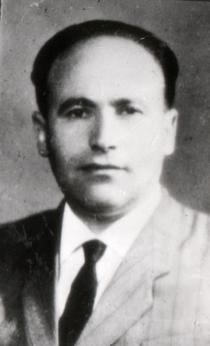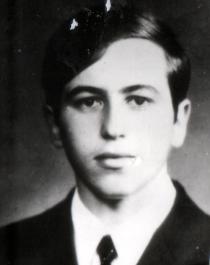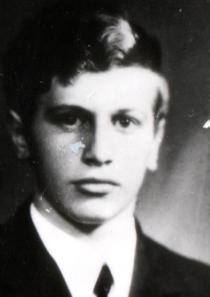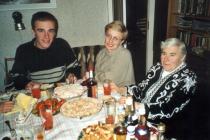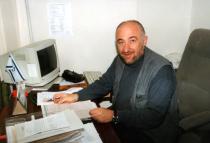This is a picture of my father's stepsister Sophia Breizman. The photo was taken in Kiev in 1958.
My paternal grandfather, Boruch Breizman, became a widower when my father was just a child. When the mourning after his wife was over my grandfather remarried. I knew his second wife, Liebe, my father's stepmother. Grandmother Liebe was over ten years younger than grandfather. They had five children.
Sophia Breizman, my father's youngest stepsister, and I were friends. I loved her dearly. She had a hard life. When she was a child and then a teenager she had to work 12-14 hours a day helping her mother. She studied at a lower secondary school, but had to quit. She studied by herself and entered Pedagogical College in Zhytomyr in 1930. After finishing it she entered the Faculty of Philology at Kharkov University. She was expelled when she was a 3rd-year student. Another student that came from Zhytomyr wrote a report saying that she was an alien element since she wrote in her application form that her parents were poor people while her mother was a shopkeeper. She meant Grandmother Liebe, who baked bread. She didn't have a store and only sold bread that she made, but who would have believed that? There was a general meeting where Sophia was expelled from university where only children of proletariat could study. Sophia returned to Zhytomyr.
When the Great Patriotic War began Sophia, Grandmother Liebe, Clara and her children evacuated. After the war they returned home. Sophia lived with my grandmother and Clara's family. She went to work as a teacher of the Russian language and literature at school. Sophia wrote poems in Russian, but she didn't have an opportunity to publish them. Only occasionally a few were published in magazines. After she passed away her sisters published a book of her poems in Israel. Her private life was difficult, too. She dated a young man that was her neighbor in Zhytomyr. They loved each other and were going to get married.
In 1937 [during the Great Terror] he was arrested - somebody reported on him - and exiled to Siberia. He stayed in camps for ten years and she was waiting for him. After he got released he wasn't allowed to go home. He had to stay in a town in Siberia. He married a woman there. After the Twentieth Party Congress he was rehabilitated [Rehabilitation in the Soviet Union] and came to Zhytomyr. He came to see Sophia. They spent a few days together. He didn't dare tell her that he was married. Only at the station, when he got on a train to go back to his family, he told her. It was a blow to her. When he left, Sophia didn't want to see anyone and was depressed. A few years later her colleague, a widower who was 20 years older than Sophia, proposed to her. He had a house. Sophia married this man for his house. They didn't have any children. She put all her feelings into her poems that were not published. Unfortunately, I don't have them. Sophia died after a lingering disease in 1986. She was buried in the town cemetery in Zhytomyr. It wasn't a Jewish funeral.
